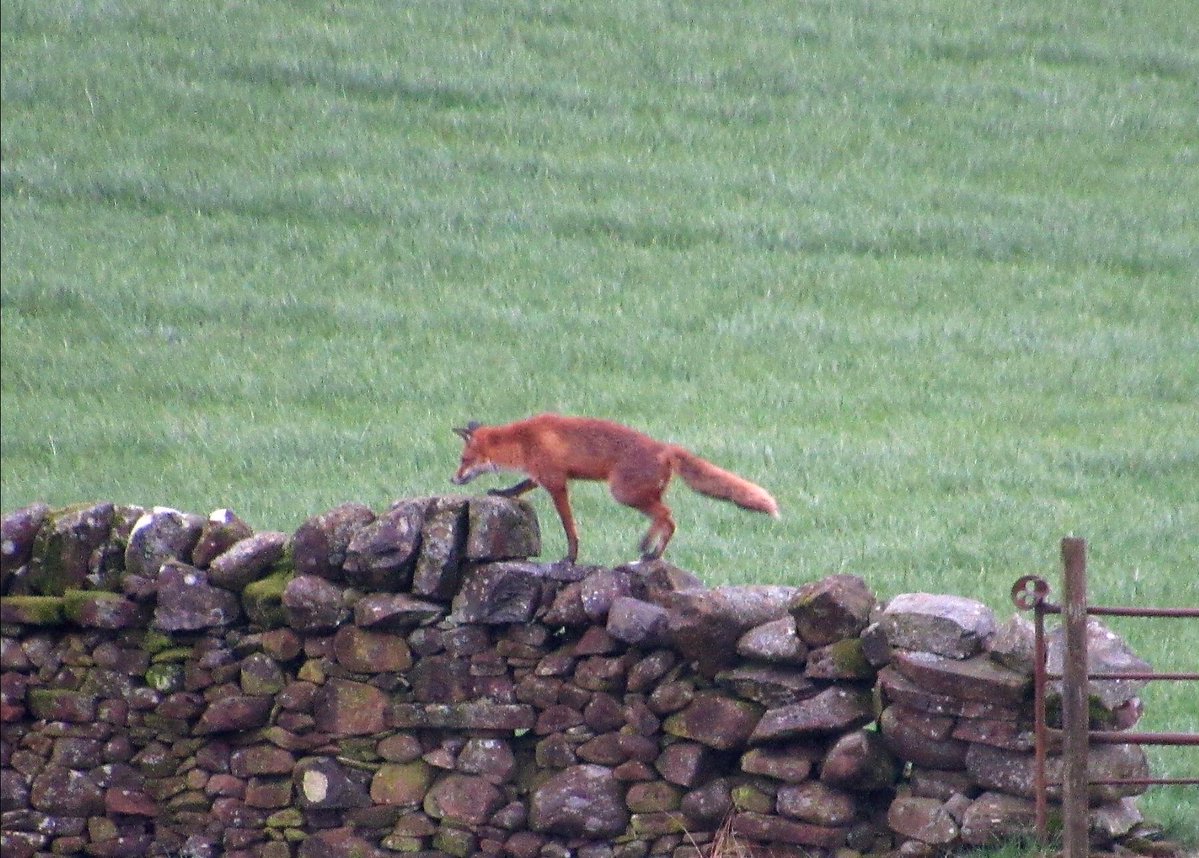How to deter foxes and keep them away from poultry.

Trying to keep a predator out of your stock is laborious and stressful. Remember that foxes are intelligent animals, so it's important to use a combination of tactics to keep them away from your chickens. Be consistent in your efforts and stay vigilant to ensure the safety of your flock.
Table of Contents
Coming out to a ground covered in feathers can be one of the most heart breaking sights, and, having been there in the past I have every bit of sympathy for those who have experienced a fox attack.
The only reason a fox will kill a chicken, is if it has viable access to it, it is much the same as a thief stealing from a shop, if the camera and staff are absent, the job is easier.
This article is part of a 5 part series of guides on dealing with foxes:
- Outfoxing the fox, the complete guide to protecting your flock with all your questions answered.
- Can chicken runs be fox proof and how to achieve it.
- How do you know if it is a fox killing your chickens?
- Dealing with Foxes. What you need to know about catching, trapping and killing them.
- How to deter foxes and keep them away from poultry.
Over time foxes can become habituated to deterrents, making them less effective. It is better to use more than one deterrent and to cycle through them, presenting new situations to the foxes.
Having a rooster will not deter a fox.
What scares foxes away?
Foxes are known to be predators of chickens and can be a threat to backyard flocks.
Here are some steps you can take to deal with foxes that are taking chickens:
Electric fencing: This type of prevention can be costly, but at the same time may be one of the best solutions to security.
Electric fencing can be bought as a mesh and used as a standalone wall type structure instead of chicken wire providing a shock to any predator that wishes to pass through it.
3 lines of wire can ensure that a fox cannot go under, through or above the fencing without being zapped. Alternatively, you can also use electric fencing as an "on-top" wall/roof/fence addition. Putting a single, or double line above a wall of chicken wire or wooden fencing can provide a brilliant addition to any run and can be less expensive as less wire is required. As foxes may tend to try and jump a fence, the addition of an electric wire on the top will quickly stop the animal in its tracks before it can grab a hold and progress to the other side.
Although this option can be expensive for the start up, once it is up and running the general upkeep will be less expensive that constantly restocking your animals or replacing houses and chicken wire.
Control vermin: Keeping rats and mice away from your land will keep away the predators that feed on them.
Reduce the cover: Foxes prefer to be concealed and dislike open land, removing the cover removes places they can hide. Keeping land clean and tidy will help as well.
Remove access to feed and water: Foxes like all animals need water and if they can't get it on your land they will go elsewhere.
Ultrasonic deterrents: - It's been featured on BBC's Countryfile and described by the National Fox Welfare Society as the 'ultimate fox deterrent'. These devices have been claimed to be one of the best, cost- efficient products for keeping the foxes at bay, even in the most aggressive of cases.
If set up properly according to the manufacturers instructions these devices can provide a very highly intense sound projection to the environment. These devices are normally completely inaudible to most animals, including humans.
A radio: There is much debate about whether a radio is effective at keeping foxes away, My feeling is it may work initially but the fox will become habituated.
Water jetting devices: - These quite new contraptions tend to be hitting the poultry community by storm recently. The device works by detecting the presence of an animal in the area and instantly shooting water in its direction. Although it may be effective for the quick, first time shock, it may be a case of trial and error to see whether the foxes habituate to the water based deterrent. Many of these devices can be based on an ultrasonic based detection method which senses the whereabouts of the animal and directly fire at it, as not to fire water in any direction. These tend to be a bit more expensive, but apparently very effective!
Scoot fox repellent: This scent-based fox repellent is currently being recommended by many conservationists such as Chris Packham and The Fox Project Charity, and widely acclaimed as the most effective fox repellent on the market. The repellent is designed specifically for foxes by giving off a false scent that makes the fox think there is another predator in your garden, therefore making it keep away to avoid confrontation. To apply the product is quite simple in terms of labour and time needed. All you need to do is dissolve the sachet of powder in water and then spread it around your garden with a watering can or garden sprayer. Many suggest this is a more natural way to control the fox population you may be going up against.
Secure your chicken coop: Make sure that your coop is secure and there are no gaps or holes in the fence or walls that a fox can enter through.
Below: Use quality weld mesh or hardware cloth to cover any openings that might allow a fox to get inside.

Use paving slabs: A row of heavy duty paving slabs around the coop and run will stop digging.
Use motion-activated lights: Install motion-activated lights around the coop to deter foxes from approaching. Foxes are nocturnal animals, so they are less likely to approach the coop if it's well lit.
Install a fence: Install a fence around the coop that is at least 6 feet high and buried at least 1 foot underground. This will help prevent foxes from digging under the fence to gain access to the coop.
Use scare tactics: Use scare tactics such as loud noises or flashing lights to scare away foxes that are approaching the coop. You can also use decoys like a fake owl or a scarecrow to keep the foxes away.
Use scent deterrents: Use scent deterrents such as human hair or predator urine to keep foxes away. Spread the scent deterrents around the perimeter of the coop and near any known entry points.
Consider getting a guard animal: Consider getting a guard animal like a dog, llama or a donkey to protect the chickens. Some breeds of dogs, such as Great Pyrenees, are known for their protective nature and can be a good choice for guarding flocks.
Motion-activated noise generator: Foxes are intimidated by light, noise and movement so motion activated sound generators can be an effective deterrent.
Fox alarms: These devices emit a loud, high-pitched sound when they detect motion, which can scare off foxes and other predators.
Chemical deterrents: There are several chemical deterrents on the market that are specifically designed to repel foxes, including sprays and granules.
Chilli or cayenne powder: Foxes and all members of the dog family have extremely sensitive noses and react badly to chilli or cayenne. It has to be kept dry and renewed often to be effective.
Guard animals for livestock protection:
There are several animals that are known to deter foxes from your property. Here are a few examples:
Dogs: Dogs are natural predators of foxes and can help keep them away from your property. Breeds that were originally bred for hunting, such as hounds, terriers, and some shepherd breeds, may be particularly effective at deterring foxes.
Donkeys: Donkeys are known for their protective nature and can be effective at keeping predators, including foxes, away from livestock. They may even try to stomp or kick predators that get too close.
Geese: Geese are territorial animals and will often aggressively defend their territory against intruders, including foxes. The loud honking and flapping of their wings can be enough to scare away predators. A goose and a fox are a pretty even match and a large hungry fox will prevail.
Guinea fowl: Guinea fowl are also known for their aggressive nature and can help deter foxes. They have a loud, distinctive call that can alert other chickens to the presence of a predator.
Llamas and alpacas: Llamas and alpacas are often used as guard animals for livestock, including chickens. They are territorial animals and will use their size and strength to defend their territory against predators.
It's important to note that while these animals can be effective at deterring foxes, they may not be suitable for everyone's property or situation. Each animal has its own set of needs and requirements, so it's important to do your research and consult with a professional to determine if a guard animal is right for you. Additionally, it's important to provide proper training and care for any animal you choose to use as a guard animal to ensure their safety and well-being.
